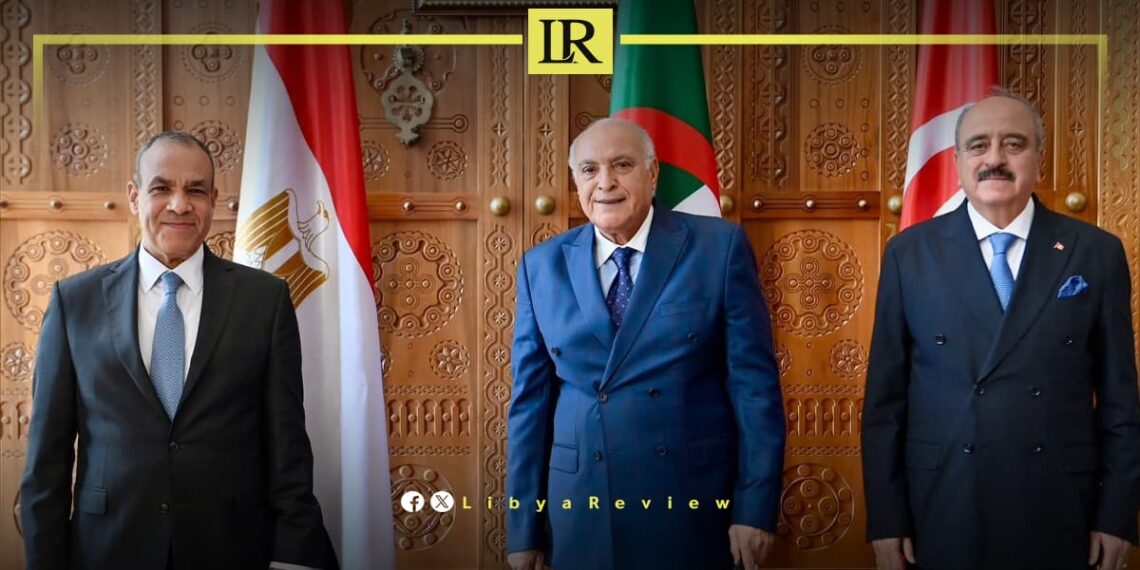Egypt’s Foreign Minister, Badr Abdelatty, reiterated Cairo’s firm support for a Libyan-owned political settlement during the Tripartite Mechanism meeting of Libya’s neighbouring states, held on Thursday in Algiers with the participation of Algeria’s Foreign Minister Ahmed Attaf and Tunisia’s Mohamed Ali Nafti.
According to Foreign Ministry spokesperson Tamim Khallaf, Abdelatty emphasised Egypt’s longstanding position that a comprehensive political solution—driven solely by Libyans and facilitated by the United Nations—is the only viable path to restoring stability in Libya. He stressed that this process must be free from foreign interference or imposed agendas, and anchored in dialogue and consensus among Libyan stakeholders.
Abdelatty affirmed Egypt’s readiness to continue supporting UN and regional efforts aimed at unifying Libya’s fragmented institutions. He warned that the ongoing political division and the absence of a single, legitimate executive authority would continue to hinder any meaningful progress towards stability. He called for stronger coordination among neighbouring Arab states to encourage Libyan parties to advance the UN-proposed roadmap, particularly the formation of a unified government mandated to prepare for simultaneous presidential and parliamentary elections.
The minister also underscored the urgency of withdrawing all foreign forces, mercenaries, and foreign fighters from Libyan territory without exception, in accordance with Security Council resolutions. He stressed that Libya’s full sovereignty and territorial integrity cannot be restored while foreign military actors remain on its soil, adding that Libya’s security is inseparable from Egypt’s and the wider Arab region’s national security.
Abdelatty urged the adoption of a holistic approach to the crisis—one that addresses political, economic, security and social dimensions in parallel—warning that focusing on a single track would not resolve the underlying causes of instability.
He concluded by reaffirming Egypt’s commitment to continued coordination with Algeria and Tunisia within the framework of the trilateral mechanism, stressing that sustained joint efforts are essential to helping the Libyan people achieve lasting stability, development and prosperity.


